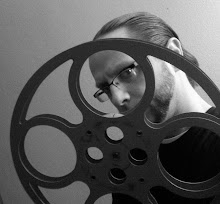Reel Speak’s Retro Reviews will randomly review a classic film from the TCM library every week, with the intention of introducing some overlooked and perhaps forgotten screen gems from the past to those of us who may be unfamiliar or unawares of their existence.
The 1942 drama/mystery film KEEPER OF THE FLAME was not without its controversy. It was heavily criticized for leftist politics, and famed MGM Studios head Louis B. Mayer reportedly stormed out of a screening; angered at the film connecting wealth with fascism. It was called propaganda at the time, but it’s also a noir film with two of old Hollywood’s biggest stars.
Famed journalist Stephen O’Malley (Spencer Tracy), sets out to write a biography of national hero Robert Forrest, who had died by driving his car over a collapsed bridge. After finding his way into the mansion, he encounters Forrest’s widow Christine (Katharine Hepburn), and discovers most of Forrest’s life shrouded in mystery.
Directed by George Cukor and based on the novel of the same name by I.A.R. Wylie, KEEPER OF THE FLAME starts off as a journalistic venture which quickly dives into a mystery. O’Malley finds resistance at every step, beginning with finding a way around the locked gates of the estate, and ending with Forrest’s still-employed staff hiding and burning paperwork at every turn. O’Malley eventually makes a connection with Christine, and even though she may also be hiding something, the two begin to fall for each other.
While the plot is thick enough to sustain things, KEEPER OF THE FLAME plays out as very dull. Even when O’Malley and Christine discover a spark between them, the film just doesn’t have much energy or a decent buildup of drama. Even when the big secret is finally revealed (which is shocking, even for today’s standards), the buildup towards it is weak and somewhat lessens it. Filmed mostly on soundstages, director George Cukor makes great use of lights and shadows and presents a great looking picture in every frame.
Spencer Tracy and Katharine Hepburn are wonderful in the film together. Filmed right when the two were starting their real-life love affair, there is a chemistry there that leaps off the screen. The two of them are actually better than what the film deserves.
The objections that KEEPER OF THE FLAME met in 1942 are well-founded considering the time period, and even today the ideas the film puts out there, along with what Forrest was up to, can be a scary thing. This is a bold film for the 1940’s that still carries meaning today; it just lacks some power to really get the point across.
BOTTOM LINE: Rent it
*
Reel Facts: GOP members of Congress objected to the film and demanded that the president of the Motion Picture Production Code establish guidelines for propaganda films. George Cukor would later win Best Director for MY FAIR LADY in 1964.










